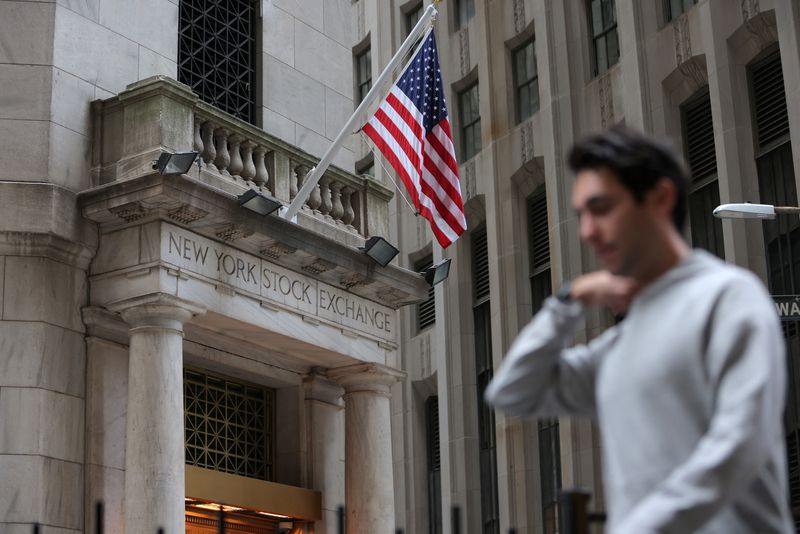A look at the day ahead in U.S. and global markets from Mike Dolan.
With an anxious look at China's worsening COVID surge, the U.S. dollar appears revitalized just as speculators turn against it for the first time this year.
The approach of Thursday's Thanksgiving holiday has most asset managers mulling next year's outlook after a dire 2022 for pretty much everything except commodities and the dollar.
Peak interest rates, peak COVID, peak energy all get discussed as themes for 2023, along with recession risks, a return of bonds and a cresting of the supercharged dollar - which has already given back almost half its near 20% surge this year.
And it appears many speculators have already turned tail. According to Commodity Futures Trading Commission data released on Friday, positioning in U.S. dollars turned net short last week for the first time since mid-July 2021.
Sometimes seen as a contrarian indicator, the first bearish tilt in positioning in 16 months did little to hurt the dollar on Monday as tension surrounding the damage to China's economy from its ongoing COVID battle seemed to recharge the greenback.
The dollar rose sharply against the yuan, yen, euro and sterling. With one eye on Federal Reserve meeting minutes later in the week, futures markets continue to nudge peak Fed rates next year further above the 5% level.
China is fighting numerous COVID-19 flare ups meantime. It reported 26,824 new local cases for Sunday, nearing the country's daily pandemic peak in April and involving two deaths in Beijing that were China's first since late May.
Also anxious about the unfolding property bust, China's central bank and banking and insurance regulator said domestic banks should step up credit support for the economy.
Concerns over fuel demand from China and the dollar's renewed strength saw oil prices drop near two-month lows. The disinflationary force of oil's retreat is building and annual percentage gains have now fallen back into single digits.
Goldman Sachs (NYSE:GS) on Sunday cut its fourth-quarter Brent crude price forecasts by $10 to $100 a barrel, the second forecast cut since September, citing China worries.
The dollar also got a lift from the widening crypto shock, with bitcoin falling back below $16,000 on Monday.
Failed cryptocurrency exchange FTX, which has filed for U.S. bankruptcy court protection, said it owes its 50 biggest creditors nearly $3.1 billion. Bank of England Deputy Governor Jon Cunliffe on Monday said the FTX implosion showed the need to bring the crypto world within the regulatory framework.
In Britain, the government said it has no plans to move to a smoother Swiss-style relationship with the European Union as newspaper reports to that effect drew a sharp reaction from Prime Minister Rishi Sunak's more eurosceptic lawmakers. BoE policymakers last week said Brexit was hurting the UK economy.
As the U.S. earnings season draws to a close, attention turns to lockdown darling Zoom Video Communications on Monday as it's expected to report a 4.6% increase in revenue.
Shares in UK lender Virgin Money (LON:VM) were the big mover in Europe and they leapt 16% after the bank reported a jump in full-year profit and investor payouts.
Key developments that may provide direction to U.S. markets later on Monday:
* San Francisco Federal Reserve President Mary Daly speaks
* U.S. corporate earnings: Zoom
* U.S. Treasury sells 2-year, 5-year notes

GRAPHIC: $ Shorts Re-emerge - https://fingfx.thomsonreuters.com/gfx/mkt/akveqzoonvr/One.PNG
GRAPHIC: China lending rates unchanged - https://graphics.reuters.com/CHINA-ECONOMY/LPR/klvygkngrvg/chart_eikon.jpg
(By Mike Dolan, editing by Emelia Sithole-Matarise mike.dolan@thomsonreuters.com. Twitter: @reutersMikeD)